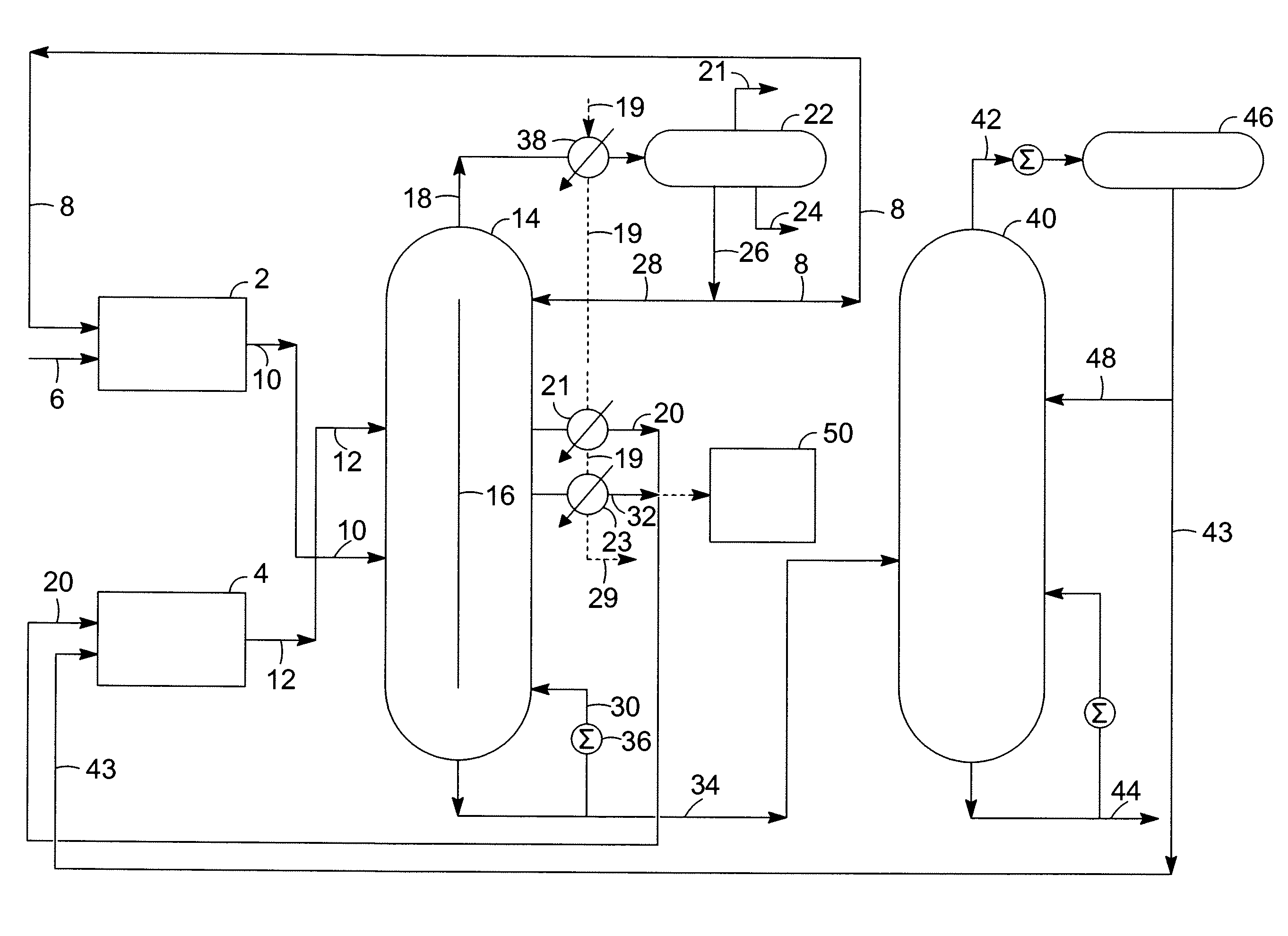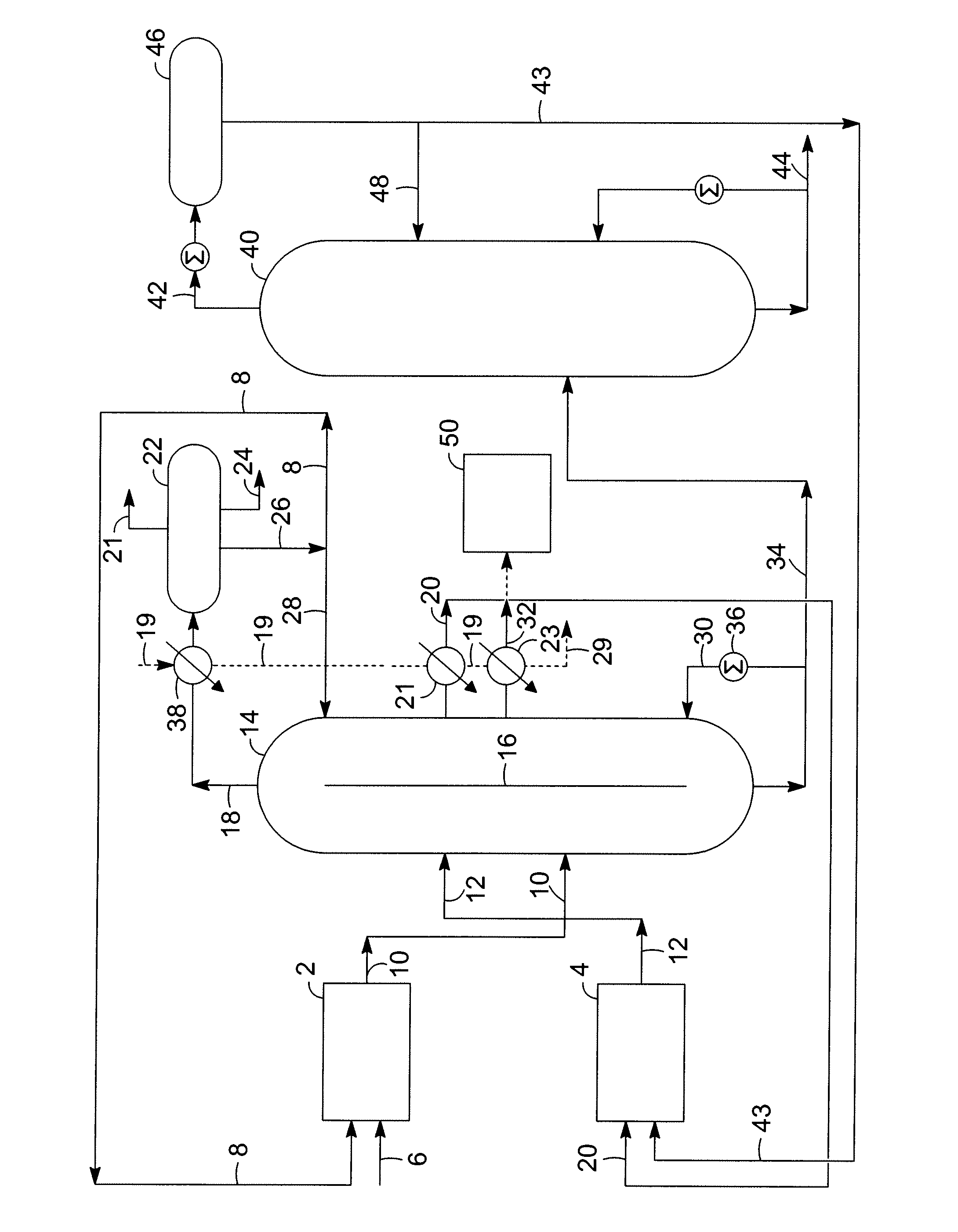Apparatus for producing ethylbenzene or cumene
a technology of ethylbenzene and cumene, which is applied in the direction of thermal non-catalytic cracking, evaporation, separation processes, etc., can solve the problems of cumene yield loss based on propylene reactant charge, problems in some commercial processes,
- Summary
- Abstract
- Description
- Claims
- Application Information
AI Technical Summary
Benefits of technology
Problems solved by technology
Method used
Image
Examples
Embodiment Construction
[0014]Referring to the FIGURE, the process of the invention requires two reactors, an alkylation reactor 2, or alkylator, and a transalkylation reactor 4, or transalkylator. Ethylene or propylene feedstock 6 and an excess of benzene 8 are introduced to alkylator 2. A typical ethylene feedstock may contain polymer grade ethylene (99.9 vol-% min.) acetylene (10 ppm vol-% max.), acetylene (1 ppm vol.-% max.), dienes (1 ppm vol.-% max), propylene (25 ppm vol-% max.), and C3 and heavier components (100 ppm vol.-% max). A typical benzene feedstock may contain benzene (99.9 wt.-% min.) and toluene (0.05 wt.-% min). Alkylation reactors may be operated in the vapor phase, liquid-phase or mixed-phase. It is preferred to operate the alkylation reactor in the liquid phase. At the lower temperatures of the liquid phase operation, xylene impurities are not produced and an ethylbenzene or cumene product of superior quality is produced. In one embodiment, the temperature of the alkylation reactor i...
PUM
 Login to View More
Login to View More Abstract
Description
Claims
Application Information
 Login to View More
Login to View More - R&D
- Intellectual Property
- Life Sciences
- Materials
- Tech Scout
- Unparalleled Data Quality
- Higher Quality Content
- 60% Fewer Hallucinations
Browse by: Latest US Patents, China's latest patents, Technical Efficacy Thesaurus, Application Domain, Technology Topic, Popular Technical Reports.
© 2025 PatSnap. All rights reserved.Legal|Privacy policy|Modern Slavery Act Transparency Statement|Sitemap|About US| Contact US: help@patsnap.com


